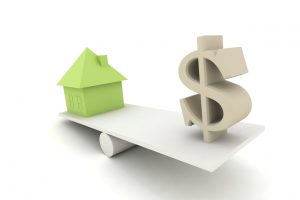 Many of us practice simple ways to save energy, fuel, and water every day. This includes things like turning off the lights when you leave a room, shutting off the water when you brush your teeth, and shutting down electronics that aren’t in use. In addition, you might have ways to reduce energy usage when it comes to your heating and air conditioning equipment, like turning the thermostat to an efficient temperature when it is not in use, and regularly changing the air filter.
Many of us practice simple ways to save energy, fuel, and water every day. This includes things like turning off the lights when you leave a room, shutting off the water when you brush your teeth, and shutting down electronics that aren’t in use. In addition, you might have ways to reduce energy usage when it comes to your heating and air conditioning equipment, like turning the thermostat to an efficient temperature when it is not in use, and regularly changing the air filter.
Eventually, though, an air conditioning or heating system declines to the point that it’s no longer possible to use it efficiently. That’s when we recommend purchasing a new, high-efficiency system that will last you many years to come. We know that may require some guidance, but our experts are here to help!
Heat Pump and AC Efficiency
As a quick primer, a heat pump is a heating and cooling system in one, using the same components as an air conditioner to run in cooling mode and reversing operation in heating mode. As such, efficiency is measured in the same terms.
- SEER/EER – Used to measure cooling efficiency, the EER (Energy Efficiency Ratio) measures energy usage of an air conditioner over an entire season while the SEER (Seasonal Energy Efficiency Ratio) measures energy use at a specific level (like at 95°). That’s why SEER tends to be a more trustworthy number, and a higher SEER indicates a more efficient system. While the minimum SEER is 13, you’re looking for something closer to 16 for excellent energy efficiency.
- HSPF – The HSPF (Heating Seasonal Performance Factor) measures heating efficiency in heat pumps. The most efficient systems will have an HSPF between about 8.2 and 10.
Furnace and Boiler Efficiency
Furnaces and boilers use the same rating to indicate efficiency, the AFUE (Annual Fuel Efficiency Utilization). The AFUE is essentially a percentage of how much heat energy is used up for heating (when some is used up in other ways. A 98 AFUE would indicate that 98% of the fuel the heater uses is converted to heat, while 2% is lost to the air around the unit, the flue, and by other means. An AFUE of 90 or above is ideal.
Efficiency vs. Cost of Operation
We think it’s extremely important to know that just because something is marked as “high-efficiency,” it doesn’t necessarily mean you will pay less, particularly when it comes to electric heating systems. Electric heating systems can have a 100% efficiency rating and still be costly to run due to the high rates for electricity.
Sizing and Efficiency
Finally, it’s important to be sure the size of the air conditioner or heater is right for your home if you expect it to run efficiently. Otherwise, you may end up with a system that is too small and cannot possibly cool or heat the home properly. It will run constantly and use up more energy, regardless of energy rating.
Surprisingly, an oversized air conditioner or furnace isn’t much better. This can run too often in short bursts, which wears down the components and leads to problems with the system. Call a trained technician to help you pick out the right system for your home!
For quality air conditioning installation in Colorado Springs, CO, contact Robbins Heating & Air Conditioning today.
